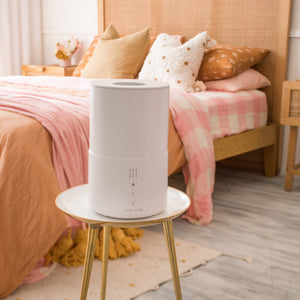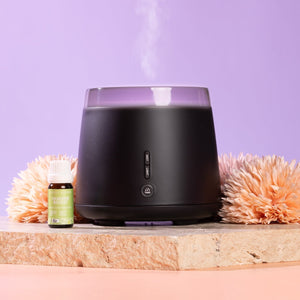Exploring the Connection Between Stress and Sleep
Tossing and turning all night? Do you find your mind racing when your head hits the pillow? You are certainly not alone in experiencing these difficulties. Many of us struggle with this, and often, stress is the unwelcome guest keeping us awake. Understanding this link by exploring the connection between stress and sleep is the first step toward finding relief. We will examine how these two essential parts of our lives influence each other, affecting everything from our mood to our physical health.
Table Of Contents:
- What Exactly Is Stress?
- Understanding the Basics of Sleep
- The Vicious Cycle: Exploring the Connection Between Stress and Sleep
-
The Toll on Your Health: Consequences of Poor Sleep and High Stress
- Smart Ways to Manage Stress for Better Sleep
- Tips for Improving Your Sleep Hygiene
-
Knowing When It's Time to Get Professional Help
- Conclusion
What Exactly Is Stress?
Stress feels different for everyone, and individuals vary in their response to it. At its core, stress is your body's reaction to any change or demand that requires an adjustment or response. This reaction can be physical, mental, or emotional, forming a natural part of a stressful life.
Think about deadlines at work, arguments with loved ones, or even a significant life event like a wedding. Even positive changes, such as moving to a new city or starting a new job, can bring on stress and influence sleep. Your body is equipped to handle small doses of stress, which can sometimes be beneficial.
However, problems arise when the stress response becomes chronic or overwhelming. It can start to affect your health and psychological well-being. Understanding what stress is, and how your unique stress reactivity works, can help you manage its impact more effectively.
Types of Stress You Might Experience
Stress isn't just one thing; it comes in a few forms, with the two main types being acute stress and chronic stress. Recognizing which type you are facing is helpful for management. A stressful event can trigger either type depending on its duration and intensity.
Acute stress is short-term and often results from specific stressful events. It's the kind you feel when you slam on the brakes to avoid an accident or have a sudden disagreement. It comes on quickly but also usually goes away quickly once the stressful life event has passed. This type of stress can sometimes even be a little exciting or helpful in small bursts, giving you a surge of energy to meet a challenge or a deadline.
Chronic stress is the one we really need to watch out for, as it can lead to more persistent sleep problems. This is long-term stress, sticking around for weeks, months, or even years. It might come from ongoing problems like a difficult job, financial worries, long-term relationship issues, or caring for a sick family member. Chronic stress quietly wears down your body and mind over time, contributing to various physical symptoms and potentially leading to stress-related disorders.
Your Body's Reaction: The Physiological Response
When you perceive a threat or a stressful situation, your body initiates a complex physiological response. This is often called the 'fight-or-flight' response, an ancient survival mechanism designed to protect you from danger. This involves significant somatic arousal to prepare you for action.
Your brain's hypothalamus signals your adrenal glands to release a cascade of hormones. These hormones include adrenaline and cortisol. Adrenaline increases your heart rate, elevates your blood pressure, and boosts energy supplies. Cortisol, the body's primary stress hormone, increases sugars (glucose) in the bloodstream, enhances your brain's use of glucose, and increases the availability of substances that repair tissues. Cortisol also curbs functions that would be nonessential or detrimental in a fight-or-flight situation, such as digestive and reproductive systems and growth processes. This intricate stress response is vital for acute situations.
This system is remarkably effective for escaping immediate physical danger. However, if stress is constant, from ongoing psychological stress or repeated stressful life events, your body remains in this high-alert state. This prolonged activation, with persistently high cortisol levels, can disrupt almost all your body's processes, leading to issues like sleep disruption and impacting your overall physical health.
Understanding the Basics of Sleep
Sleep is much more than just a period of rest when you're not awake; it's an active and essential biological process. It's critical for your physical and mental health, during which your body works to support healthy brain function and maintain your physical well-being. Understanding sleep physiology helps in appreciating its importance.
Most adults need around 7-9 hours of quality sleep each night to function optimally. However, it's not just about the total hours of sleep. The quality and structure of that sleep, including achieving longer sleep in restorative stages, are just as important for feeling rested, rejuvenated, and maintaining good sleep efficiency.
When you don't get enough good sleep, you'll likely feel tired and may experience poor sleep quality. You might also find it harder to concentrate, make decisions, or regulate your emotions. Good sleep is a fundamental pillar of a healthy and productive day.
The Journey Through Sleep Cycles and Stages
When you sleep, your brain cycles through different stages of sleep. Each full sleep cycle typically lasts about 90 to 110 minutes, and you go through several of these cycles per night. Each sleep stage plays a distinct role in brain health and physical restoration.
There are two main types of sleep: Non-Rapid Eye Movement (NREM) sleep and Rapid Eye Movement (REM) sleep. NREM sleep is divided into three stages: Stage N1 is light sleep, the transition between wakefulness and sleep where you might easily be awakened. Stage N2 is a deeper sleep where your heart rate slows and body temperature drops, preparing you for deep sleep. Stage N3 is the deepest stage of NREM sleep, often called slow-wave sleep. It's during this restorative sleep stage that your body does most of its repair work on tissues, bones, and muscles, and it also helps strengthen your immune system. This stage is crucial for feeling refreshed.
REM sleep is when most of your vivid dreaming happens, characterized by rapid eye movement. Your brain activity during REM sleep is similar to when you are awake. This stage is crucial for cognitive functions such as learning, memory consolidation, emotional processing, and creativity. Stress can significantly impact the amount of REM sleep you get, potentially leading to sleep fragmentation if you are frequently woken up.
Why Quality Sleep Truly Matters
Getting enough quality sleep, marked by good sleep efficiency and sufficient time in each sleep stage, is vital for many reasons. It's not merely about feeling less tired; it supports comprehensive physical restoration. Many find tracking their self-reported sleep can help identify patterns and issues.
During deep sleep (NREM Stage N3), your body diligently repairs and regrows tissues, builds bone and muscle, and strengthens the immune system. This means you're better equipped to fight off illnesses and recover from daily wear and tear. Insufficient deep sleep can leave you feeling physically run down and more susceptible to infections.
Mentally, sleep is just as critical for optimal psychological well-being. It helps improve concentration, productivity, and performance in daily tasks. Quality sleep supports essential brain functions like learning, problem-solving, and consolidating memories. It also plays a significant part in regulating your mood and emotional resilience; when you are well-rested, you are generally better able to handle life's challenges and stressors.

The Vicious Cycle: Exploring the Connection Between Stress and Sleep
It often feels like a cruel irony. The more stressed you are, the harder it is to fall asleep or stay asleep. Then, the less sleep you get, the more stressed and overwhelmed you feel, creating a difficult cycle to break and often leading to persistent sleep issues.
Stress activates your body's alert system, the fight-or-flight response, leading to a state of hyperarousal. This makes it difficult to relax, quiet your mind, and fall asleep. Lack of sleep, in turn, can make you more sensitive to stress by impairing your emotional regulation and cognitive function, diminishing your ability to cope with daily pressures. This negative feedback loop can significantly impact your overall health, leading to stress-related sleep problems and poor sleep quality.
Understanding this intricate relationship by thoroughly exploring the connection between stress and sleep is the crucial first step towards finding effective solutions. It helps you see that managing one aspect, like reducing psychological stress, can positively affect the other, potentially alleviating insomnia symptoms.
How Stress Keeps You Awake
When you're stressed, your mind often refuses to switch off at night, a common precursor to a sleep disorder. Racing thoughts about worries, replaying events of the day, or an endless to-do list are common experiences. This heightened mental activity keeps your brain in a state of alertness, making sleep latency—the time it takes to fall asleep—much longer, even when your body is physically tired.
Physiologically, stress leads to hyperarousal, a state of increased psychological and physical tension. Your body releases more cortisol and adrenaline, hormones designed to keep you awake, alert, and responsive to threats. This is beneficial during daytime stressful events but becomes problematic when you're trying to wind down for bed. Your heart rate might be elevated, your muscles might be tense, and your breathing shallow. It is very hard to drift off to sleep when your body is primed for action rather than rest. Research published in journals found via Pubmed Google Scholar often points to this state of hyperarousal as a key factor in stress-induced insomnia and sleep disruption.
This difficulty falling asleep or staying asleep because of stress is incredibly frustrating and can increase sleep reactivity. You know you need rest to face the next day, but your mind and body just won't cooperate, leading to nights of tossing and turning.
How Lack of Sleep Fuels More Stress
Not getting enough sleep doesn't just make you tired; it can seriously amplify your stress levels and impact your stress response. When you're suffering from sleep deprivation, your ability to manage emotions effectively takes a significant hit. Small problems might feel like insurmountable disasters, and your threshold for frustration lowers.
Sleep loss can profoundly affect your mood, making you more irritable, anxious, or even sad. Your emotional reactivity increases significantly when sleep-deprived. You might find yourself overreacting to situations you'd normally handle calmly, making daily stressors feel much more intense and harder to manage. This makes maintaining psychological well-being a challenge.
Your cognitive functions, including judgment, problem-solving abilities, and attention, also suffer from lack of sleep. This impairment makes it harder to cope with stressful situations effectively. You might make poorer decisions, find it difficult to think clearly under pressure, or struggle with concentration, further exacerbating feelings of being overwhelmed. This creates a downward spiral: poor sleep quality leads to poor coping mechanisms, which in turn leads to more stress and potentially chronic insomnia.
The Toll on Your Health: Consequences of Poor Sleep and High Stress
The combination of ongoing high stress and insufficient sleep isn't just uncomfortable; it can have serious and far-reaching consequences for your overall health. This detrimental duo can significantly impact both your physical health and mental well-being. It is a pattern often seen in individuals experiencing stressful conditions regularly.
Over time, this constant wear and tear can lead to the development or exacerbation of chronic health issues. It's not something to ignore, as the cumulative effect can be substantial. Recognizing these potential impacts can motivate you to take proactive steps towards better health.
Taking steps to manage stress effectively and improve your sleep quality is an investment in your long-term health and vitality. Let's look at some specific ways this combination can affect you. Many studies available as a pmc free article detail these connections.
| Area Affected | Specific Impacts |
|---|---|
| Immune System | Weakened immunity, increased susceptibility to infections, slower recovery from illness. |
| Cardiovascular Health | High blood pressure, heart palpitations, increased risk of heart attack and stroke. |
| Metabolic Health | Increased risk of type 2 diabetes, weight gain, changes in appetite. |
| Digestive System | Exacerbation of conditions like IBS, indigestion, heartburn. |
| Musculoskeletal System | Increased muscle tension, chronic pain, tension headaches. |
| Mental Health | Increased risk/worsening of anxiety disorders, depression, mood swings, difficulty concentrating. |
| Cognitive Function | Impaired memory, decision-making, problem-solving, and focus. |
Impacts on Your Physical Health
Chronic stress and persistent poor sleep can weaken your immune system significantly. This makes you more vulnerable to common infections, such as the cold or flu. You might find yourself getting sick more often, and your body's ability to recover from illness can also be noticeably slower.
Cardiovascular health is another major area of concern when stress and sleep deprivation persist. Prolonged stress can contribute to high blood pressure, heart palpitations, and an increased risk of more serious events like heart attack or stroke. Sleep deprivation adds to this cardiovascular burden, as quality sleep plays a vital role in repairing and healing your heart and blood vessels. Many resources confirm the clear link between sleep duration and effective blood pressure management.
Other physical symptoms and issues can include chronic digestive problems like irritable bowel syndrome (IBS), frequent headaches or migraines, persistent muscle tension leading to pain, and an increased risk of developing metabolic conditions such as type 2 diabetes. These diverse physical health problems highlight how interconnected our body systems are and how stress-related sleep problems can cascade through them.
Impacts on Your Mental Health
The connection between stress, sleep, and mental health is profoundly strong and often bidirectional. If you're constantly stressed and not sleeping well, your risk for developing or worsening mental health conditions increases substantially. Conditions like anxiety disorders and depression, including clinical depression, are commonly associated with this detrimental cycle, often showing higher scores on assessment scales.
Poor sleep can significantly worsen symptoms of anxiety. Racing thoughts at night and waking up feeling unrefreshed can fuel anxious feelings throughout the day, making it difficult to cope. Similarly, sleep disturbances are a core symptom and contributor to depression. Feeling constantly tired and overwhelmed can make it hard to find enjoyment or motivation, potentially leading to an insomnia disorder if not addressed. Addressing sleep problems through behavioral changes or sleep med interventions can often be a helpful part of managing these conditions. Research in psychiatry res often explores these links.
Beyond diagnosed clinical disorders, you might simply experience more frequent mood swings, difficulty concentrating, memory problems, or a general feeling of being perpetually overwhelmed. Life just feels harder and less enjoyable when you're caught in this loop of high stress and inadequate rest. Some studies use tools like exploratory factor analysis to understand the complex relationships between these symptoms.
Smart Ways to Manage Stress for Better Sleep
Feeling like you're stuck in that relentless stress-sleep cycle? The encouraging news is that there are effective strategies to help you break free and regain control. Actively managing your stress levels can pave the way for more restful nights and improved overall well-being.
It's about finding what works best for you, as individual differences play a role in how we respond to stress management techniques. Not every technique is a perfect fit for everyone. Try a few different approaches to see what helps you feel calmer, more in control, and better able to manage stressful life events.
Remember, consistency is very important when implementing these new habits. Integrating these practices into your daily routine will have the best long-term effect on both your stress levels and your sleep quality, aiming for longer sleep periods.
The Power of Mindfulness and Meditation
Mindfulness involves paying purposeful attention to the present moment without judgment. Meditation is a practice that trains your mind to achieve a state of deep calm and focus. Both can be incredibly helpful for stress reduction and improving self-reported sleep quality.
Even a few minutes of mindful breathing exercises each day can significantly lower stress levels and reduce somatic arousal. Many meditation apps and guided sessions are available, making it easy to start. These practices help you step back from racing thoughts, teaching you to observe them without getting caught up in them, which can be especially useful when trying to wind down before bed. Research, some of which can be found via Pubmed Google or as a free article, has shown that meditation can reduce psychological stress and improve sleep.
Consider setting aside a few minutes each day for these practices. You might meditate in the morning to start your day with a sense of calm or in the evening as part of your routine to prepare for sleep. This can help counter the effects of a stressful life.
Get Moving: The Role of Physical Activity
Regular physical activity is a fantastic and well-documented stress reliever. Exercise helps your body produce endorphins, which are natural mood boosters and pain relievers. It can also help release pent-up physical tension and mental energy, leading to a calmer state of mind.
You don't need to engage in strenuous marathon training to reap the benefits. Activities like brisk walking, jogging, swimming, cycling, or dancing can be very effective. Aim for about 30 minutes of moderate-intensity exercise on most days of the week. Even a short walk during your lunch break can help clear your head and reduce stress from work.
However, be mindful of the timing of your workouts. Try to avoid intense exercise too close to bedtime. For some people, this can be overly stimulating and make it harder to fall asleep, counteracting the goal of better sleep. Morning or afternoon workouts are generally best if improving sleep is a primary concern.
Organize Your Life: Time Management and Prioritization
Feeling constantly overwhelmed by a never-ending to-do list is a major source of chronic stress for many people. Improving your time management and organizational skills can help you feel more in control and less burdened. Learn to prioritize tasks based on their true importance and urgency, not just what feels most pressing.
Break down large, intimidating projects into smaller, more manageable steps to make them feel less daunting. Don't be afraid to say no to new commitments that will overextend you or add unnecessary pressure. Using tools like a planner, calendar, or a to-do list app can help you stay organized, track your progress, and ensure important tasks are not forgotten.
Feeling like you have a better handle on your responsibilities and commitments can significantly reduce day-to-day stress levels. This, in turn, can make it easier to switch off your 'work brain' and relax fully at night, preparing your mind for sleep.
Lean on Others: Seeking Social Support
Connecting with other people and fostering strong social ties is a powerful buffer against the negative effects of stress. Talking about your worries, frustrations, or a stressful event with trusted friends, family members, or a therapist can make a huge difference. Sometimes simply voicing your concerns aloud can help you feel less burdened and gain new perspectives.
Spending quality time with loved ones, engaging in enjoyable shared activities, can boost your mood and provide a sense of belonging and security. It is important not to isolate yourself when you're feeling stressed or overwhelmed. Reach out to your support network and allow others to help you through challenging times.
If your stress feels overwhelming and unmanageable on your own, or if it's significantly impacting your sleep and daily functioning, consider talking to a mental health professional. They can provide specialized tools and strategies for managing stress effectively and addressing any underlying issues, such as an anxiety disorder.
Tips for Improving Your Sleep Hygiene
Beyond managing stress directly, focusing on good 'sleep hygiene' can dramatically improve your ability to fall asleep and stay asleep. Sleep hygiene refers to a set of habits and practices that are conducive to sleeping well on a regular basis. Think of it as creating the optimal conditions for a good night's rest.
Many of these are simple adjustments to your daily routine and your sleep environment. When practiced consistently, they can work together to signal to your body and mind that it's time to wind down and prepare for sleep. Let's explore some key areas of sleep hygiene.
Implementing these tips consistently can make a real difference in how easily you fall asleep, how soundly you sleep, and how rested you feel upon waking. Good sleep hygiene can help mitigate sleep fragmentation and improve overall sleep quality.
Crafting a Relaxing Bedtime Routine
A consistent bedtime routine helps your body and mind prepare for sleep each night. This routine acts as a signal that it's time to transition from the busyness and stimulation of the day to a state of rest and relaxation. Aim to do the same relaxing activities in the same order each night to reinforce this signal.
Your routine could include activities like taking a warm bath or shower, as the subsequent drop in body temperature can promote sleepiness. Reading a physical book (not on an electronic screen) can be calming for the mind. Listening to quiet, soothing music or a relaxation podcast can also help you unwind. Avoid stimulating activities like working, watching intense TV shows, engaging in heated discussions, or scrolling through social media in the hour or two before bed, as the blue light from screens can suppress melatonin, a hormone crucial for initiating sleep.
The key is to find activities that you personally find relaxing and to stick with them consistently. This consistency reinforces your body's internal clock, or circadian rhythm, making it easier to fall asleep at your desired bedtime and potentially achieve longer sleep.
Making Your Bedroom a Sleep Sanctuary
Your sleep environment plays a significant role in determining your sleep quality. Your bedroom should be a haven specifically for rest and relaxation. Aim to create a room that is dark, quiet, and cool, as these conditions are most conducive to falling asleep and staying asleep.
Use blackout curtains or an eye mask if your room is exposed to external light. Earplugs or a white noise machine can be helpful if you live in a noisy area or are sensitive to sounds. Most people sleep best in a cool room, typically between 60-67 degrees Fahrenheit (15-19 degrees Celsius). Also, ensure your mattress and pillows are comfortable, supportive, and suited to your sleeping position. Investing in quality bedding can make a noticeable difference to your comfort levels and overall sleep experience.
Try to reserve your bedroom primarily for sleep and intimacy. This helps your brain associate the bedroom with rest and relaxation, not with work, entertainment, or stress. Avoid watching TV, working on a laptop, or eating in bed if possible.

What You Eat and Drink Matters for Sleep
Your dietary habits can significantly affect how well you sleep. Avoid consuming large, heavy meals too close to bedtime. The process of digestion can interfere with sleep, and rich, fatty, or spicy foods can cause discomfort, indigestion, or heartburn, making it harder to rest comfortably.
Be particularly mindful of stimulants like caffeine and nicotine, especially in the hours leading up to sleep. Caffeine, found in coffee, tea, soda, energy drinks, and chocolate, can stay in your system for many hours, so it's best to avoid it in the late afternoon and evening. While alcohol might make you feel sleepy initially, it can disrupt sleep patterns later in the night, leading to less restful sleep and more frequent awakenings. Limit alcohol consumption, especially before bed.
A light, healthy snack before bed is generally okay if you're feeling hungry. Something like a small bowl of whole-grain cereal with milk, a piece of fruit like a banana, or a few nuts can be good choices. Staying adequately hydrated during the day is important for overall health, but try not to drink excessive amounts of liquid right before bed to minimize nighttime bathroom trips that cause sleep disruption.
The Calming Influence of Essential Oils
Many people find that certain essential oils can help promote relaxation and create an atmosphere conducive to sleep. Lavender is perhaps the most well-known essential oil for its calming and sedative properties, often studied for its effects on anxiety and sleep. Chamomile, another popular choice, is often used in teas and aromatherapy for its soothing and sleep-promoting effects.
You can use essential oils in a diffuser to disperse their aroma gently throughout your bedroom before sleep. Alternatively, a few drops can be added to a warm bath, mixed with a carrier oil for a light massage, or even lightly spritzed onto your pillow (after a patch test). Always make sure to use high-quality, 100% pure essential oils from reputable sources. If you have pets, especially cats, research thoroughly or consult a vet, as some essential oils can be toxic to animals when diffused or applied topically.
While essential oils are not a standalone cure for significant sleep problems like chronic insomnia, they can be a lovely and effective addition to your overall relaxation routine. They can help create a peaceful, spa-like atmosphere in your bedroom, signaling to your senses that it's time to unwind and prepare for restful sleep.
Knowing When It's Time to Get Professional Help
Sometimes, despite your best efforts with self-help strategies, stress and sleep problems can persist or even worsen. It's important to recognize when these issues are beyond what you can manage on your own. Seeking professional help from a doctor or therapist is a sign of strength and a proactive step towards better health, not an admission of weakness.
A healthcare professional can help identify any underlying causes for your stress or sleep difficulties. They can offer more specialized treatments, including therapies or, if necessary, medication. Don't hesitate to reach out if you're struggling to cope or if your quality of life is significantly impacted.
There are clear signs that indicate it might be time to consult a professional for guidance and support. Recognizing these signs early can lead to quicker and more effective interventions, preventing problems from becoming more entrenched. Research data often relies on tools like Cronbach's alpha to ensure reliability of questionnaires assessing these issues, and professionals are skilled in interpreting such data, which often approximates a normal distribution in large populations.
Signs You Might Need to See a Doctor or Therapist
If your stress or sleep problems are significantly impacting your daily life, it's a strong indication that professional help is needed. This could mean experiencing difficulty functioning effectively at work or school. Or perhaps your stress and lack of sleep are negatively affecting your relationships with family and friends.
Persistent insomnia, defined as difficulty falling asleep, staying asleep, or waking up too early and feeling unrefreshed on most nights for several weeks or more, is a key indicator that you should talk to your doctor. They can help rule out any underlying medical conditions that might be contributing to your sleep issues, such as sleep apnea, restless legs syndrome, or a thyroid disorder. Diagnosing a specific sleep disorder is crucial for effective treatment.
If stress feels overwhelming and you're experiencing persistent symptoms of anxiety (like constant worry, panic attacks, or restlessness) or depression (such as hopelessness, loss of interest in activities you once enjoyed, or persistent sadness), a therapist or counselor can provide valuable support. A mental health professional can offer coping strategies, evidence-based therapies like Cognitive Behavioral Therapy for Insomnia (CBT-I) for chronic insomnia, and, if appropriate, discuss medication options. Your primary care physician is a good starting point for discussing your concerns and getting a referral to a specialist if needed. For further reading on such topics, resources like Google Scholar or specific journals focusing on sleep res (research) can be informative.
Conclusion
Understanding and actively addressing the intricate dance between stress and sleep is so important for your overall well-being and quality of life. We've spent time exploring the connection between stress and sleep, and hopefully, you now have a clearer picture of how one directly fuels the other, creating a cycle that can be challenging but not impossible to break. By actively managing stress through effective techniques like mindfulness, regular physical exercise, and good time management, you can create a much better foundation for achieving restful and restorative nights.
At the same time, prioritizing good sleep hygiene—from establishing a relaxing bedtime routine to optimizing your bedroom environment for sleep—can significantly help reduce your stress levels and improve your resilience. Remember that taking small, consistent steps in these areas can lead to significant improvements in both your stress management and your sleep quality. This proactive approach ultimately enhances your physical health, mental clarity, and overall happiness.
If you continue to struggle despite your best efforts, please remember that professional help is available and can make a real, positive difference in your life. Addressing these issues is an investment in your long-term health and well-being, allowing you to live a more balanced and fulfilling life.




















